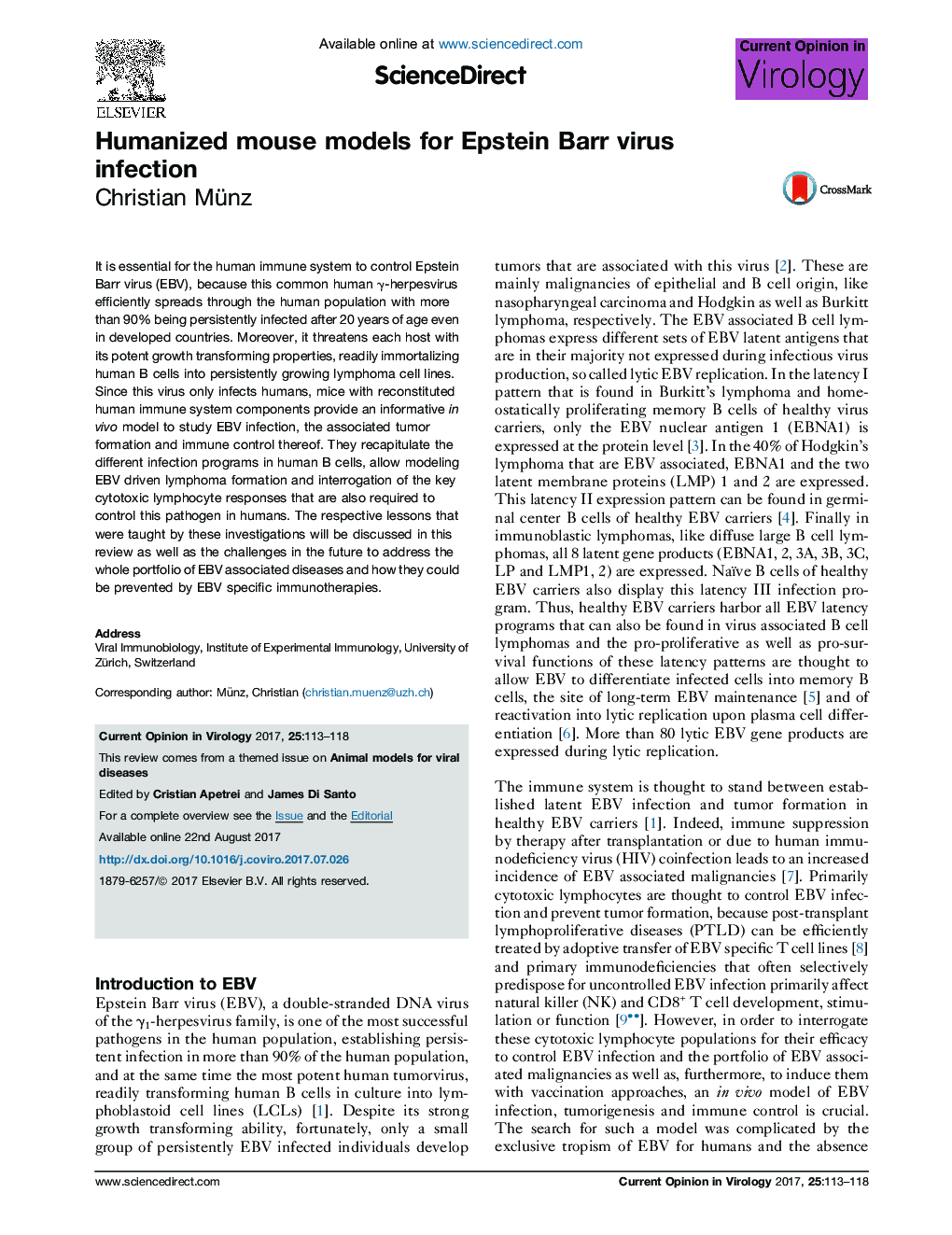| Article ID | Journal | Published Year | Pages | File Type |
|---|---|---|---|---|
| 5546189 | Current Opinion in Virology | 2017 | 6 Pages |
It is essential for the human immune system to control Epstein Barr virus (EBV), because this common human γ-herpesvirus efficiently spreads through the human population with more than 90% being persistently infected after 20 years of age even in developed countries. Moreover, it threatens each host with its potent growth transforming properties, readily immortalizing human B cells into persistently growing lymphoma cell lines. Since this virus only infects humans, mice with reconstituted human immune system components provide an informative in vivo model to study EBV infection, the associated tumor formation and immune control thereof. They recapitulate the different infection programs in human B cells, allow modeling EBV driven lymphoma formation and interrogation of the key cytotoxic lymphocyte responses that are also required to control this pathogen in humans. The respective lessons that were taught by these investigations will be discussed in this review as well as the challenges in the future to address the whole portfolio of EBV associated diseases and how they could be prevented by EBV specific immunotherapies.
